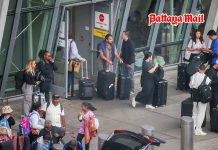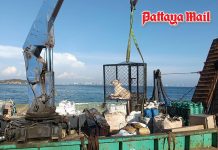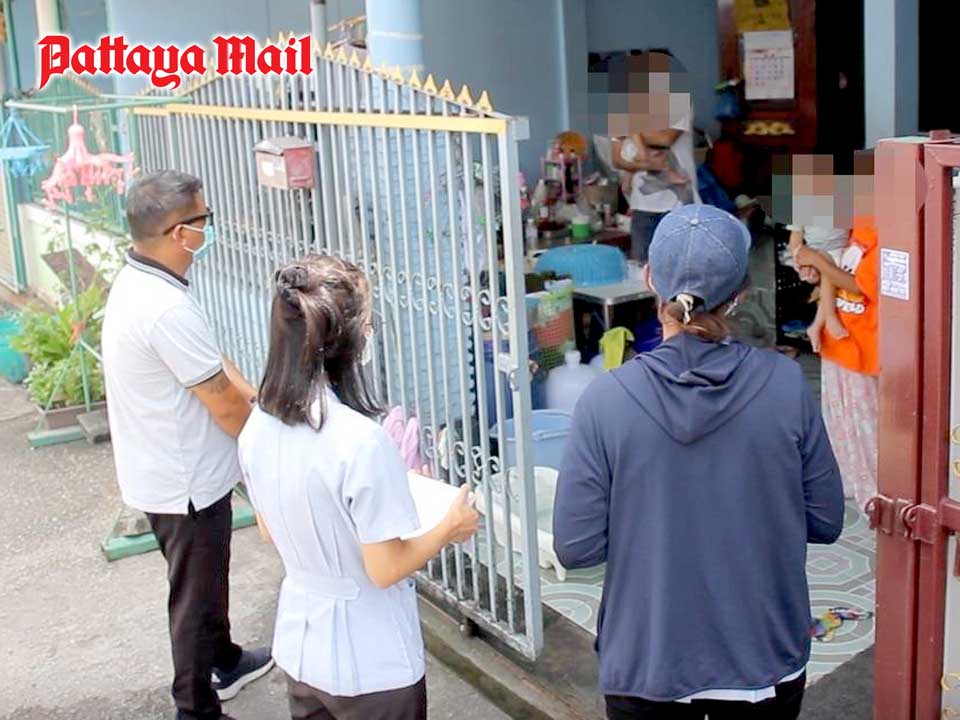
Pattaya health workers visited residents confined to home isolation, in some cases living with coronavirus-infected relatives.
Three families in Kedthip village received visits Aug. 19, with health workers bringing face masks, thermometers, gloves and plastic suits to protect the uninfected from the infected. All those infected either have no or mild symptoms.
Home isolation has become necessary nationwide as hospitals fill amid hundreds of thousands of new coronavirus cases each month. Pattaya used full-fledged hospitals first, then field hospitals, then “hospitels” (converted hotels), and, finally, home isolation or quarantine.
Chonburi on Friday reported 1,348 new Covid-19 cases with 221 of them occurring in Banglamung District, which includes Pattaya. The province also saw ten deaths as Thailand, as a whole, passed the 1 million mark for coronavirus cases since the start of the pandemic last year.
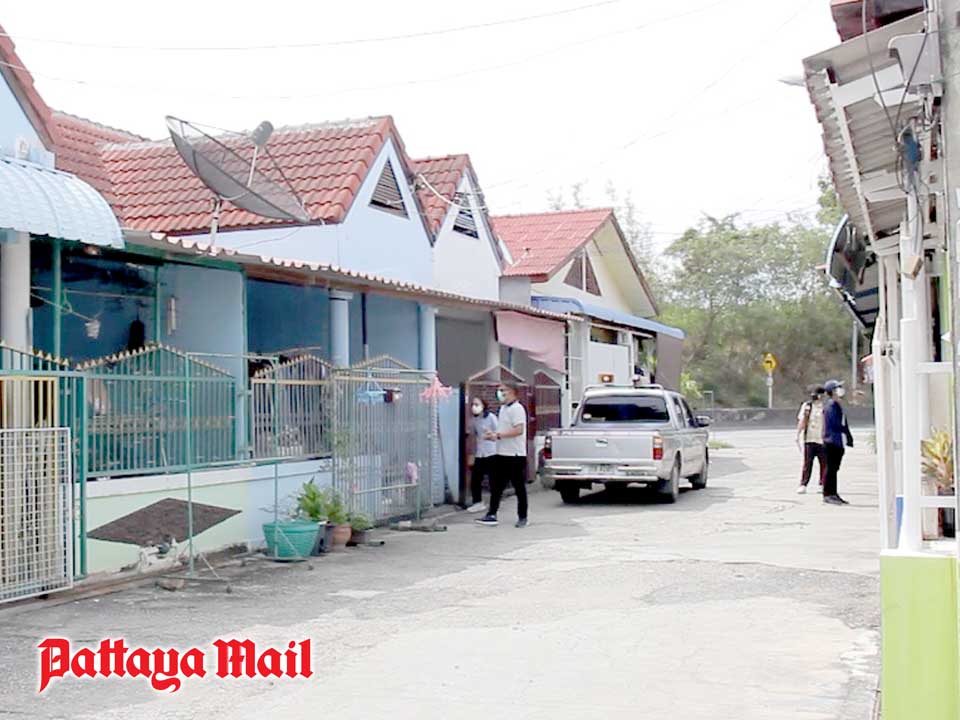
At the first stop, medical workers checked on the one member of a family of five who hasn’t contracted Covid-19. The other four later were transferred to a hospitel at the Cholchan Pattaya Resort.
A couple who became infected at work in Laem Chabang were the second visit. They are half way through their 14 days in isolation.
Things were trickier at the last stop, where ten family members live together with six of them infected. The others are awaiting test results.
Health workers explained how the sick and well must co-exist in a small space, with everyone wearing masks and using gloves, eating separately and using the restroom in shifts, with the uninfected going first and the sickest last.
Every touch surface and bathroom must be sanitized after every use. However, spray alcohol cannot be used, as it could spread the virus.
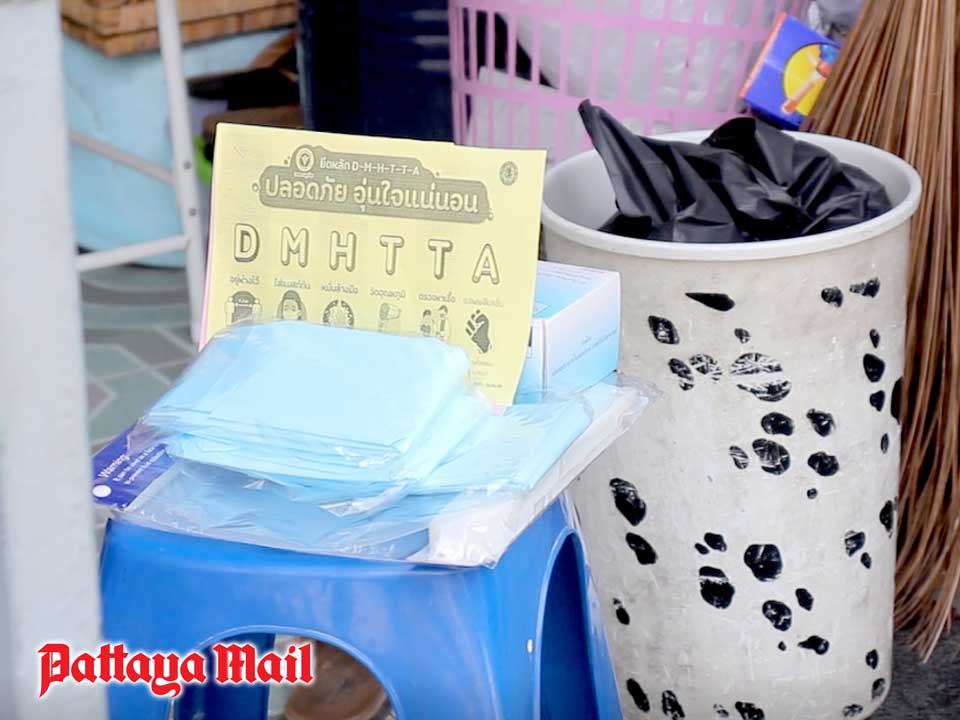
 |
 |
 |



